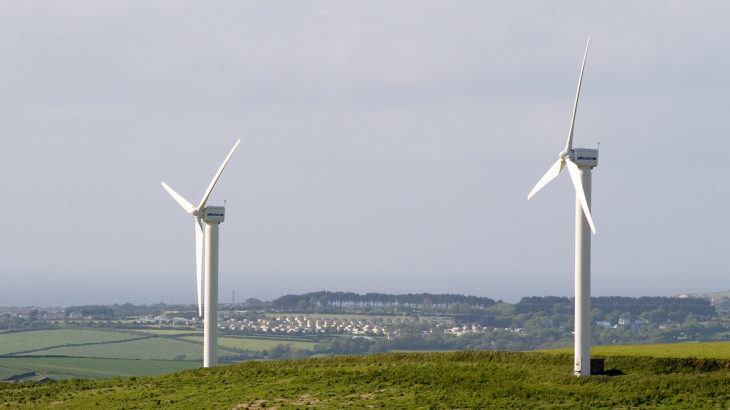How our universities are supporting COP26

This year’s UN Climate Change Conference of the Parties (COP26) in Glasgow is set to be pivotal in the global effort to tackle climate change.
The UK is hosting politicians, business people and key environmental figures to accelerate progress towards the goals of the Paris Agreement and the UN Framework Convention on Climate Change.
A number of SES member universities are at the heart of the summit – showcasing innovation and influential research to factor into the decisions made during COP26.
Powering partnerships
Imperial College London has an established record of influencing national and international policy, and in anticipation of COP26, the university launched a comprehensive programme designed to promote action on climate change. Led by the Grantham Institute, and involving a cross-section of staff, students and alumni, Imperial is aiming to engage with as many policymakers, influencers and communities as possible.
In conjunction with the programme, Imperial has a key role in the COP26 Universities Network, leading a group of more than 55 universities and research centres working together to provide expertise at the upcoming conference. The network will cover different aspects of research from joint briefing papers covering promising green recovery policies and methods for carbon offsetting in universities, through to The Climate Papers podcast series.
Further to this partnership, Imperial has also launched the centre for climate change innovation, in collaboration with the Royal Institution and the Mayor of London. As a leading light in London’s booming cleantech sector, the centre aims to innovate, debate and shape key changes in society – all while supporting London’s 300,000 climate change innovators.
Turning research into action
Imperial’s commitment to climate change action extends far beyond the summit date. The university has launched an academic strategy, focused on environmental issues, and part of this is the Transition to Zero Pollution initiative.
In the lead up to COP26, Imperial researchers who are part of the initiative have been engaging policymakers on a range of science policy issues through roundtables, panel discussions and briefings. The aim is to provide a joined-up, ‘whole system’ approach to tackling global pollution.
Building a future with climate change solutions at its core requires new skills and commitments from the current and next generation. Taking inspiration from COP26, Imperial’s Grantham Institute has introduced a pilot iSTEM course on climate change – one of several courses that all Imperial undergraduates complete to gain broader perspectives beyond their core degree. Further to this, the free Clean Power Program is an online course that focuses on the advantages of green energy and the practicalities of adopting it.
To truly extend Imperial’s influence from COP26, the university has a key position at London Climate Action Week in June and will work with the government to provide further educational materials to other education institutions to ensure the latest research on climate change is readily available.
CO2RE Hub – ‘the clean dozen’
Standing with Imperial College London at COP26 is the University of Oxford. The university is leading a national consortium of researchers to realise the ambitious goal the UK has set out to achieve: reaching net zero emissions by 2050.
The CO2RE Hub is made up of a dozen universities and has received a £30m grant from the UK Government for researchers to explore the use of scale-up greenhouse gas removal (GGR) techniques. To coordinate this vitally important programme of research, the hub will provide a platform for academics, demonstrators, businesses, and policymakers to combine their expertise and create a community that will power climate action.
With backing in place for five years, the hub’s one mission is to remove greenhouse gases to help to stabilise the climate. Professor Patrick Grant, Oxford’s Pro-Vice Chancellor for Research and an SES board member, says: “Crucially CO2RE will provide policy design options and business models to ensure GGR technologies are developed within a viable economic and political landscape.”
CO2RE will provide policy design options and business models to ensure GGR technologies are developed within a viable economic and political landscape.
Professor Patrick Grant, University of Oxford
Some of the universities involved include the University of Oxford, University of Edinburgh, University of Bristol, University College London, Imperial College London, Aberystwyth University, University of Nottingham, University of Sheffield and the UK Centre for Ecology and Hydrology.
Professor Grant adds: “This investment, in conjunction with the Oxford Net Zero Initiative and the UK Centre for Greening Finance and Investment, means a comprehensive approach to informed climate action, and we look forward to working with international partners, JPI Climate and COP26 this year.”

Part of Oxford’s role is to feed into policy development, which is why one of its researchers, Thomas Hale, has been awarded a COP26 Fellowship. His role will focus on how cities, businesses, local governments and civil society can accelerate international climate policy.
Other academics at the university have also come together to support Oxford’s True Planet campaign. Designed to provide sustainable, realistic solutions to the challenges facing our world, True Planet has engaged experts across varying fields, from law to economics to sciences. To address environmental challenges on a global scale, the university is also working in partnership with governments, industries, and the broader United Nations.
Net zero beyond COP26
Across our partner universities outside of COP26 activities, there is a hive of activity which is contributing to the UK’s mission to achieve net zero.
The University of Cambridge has recently conceived the Aviation Impact Accelerator (AIA) in collaboration with the Whittle Laboratory. This team of experts from across aerospace, economics, policy, and climate science has created an interactive simulator that aims to reach net zero flight. Using data from the entire aviation sector and the sources of renewable electricity, the simulator will create future scenarios to calculate the resource requirements and cost of flying using different resources. This groundbreaking project will be officially launched at COP26
To further explore our use of marine wave energy, researchers from Queen Mary University of London, in collaboration with the University of Manchester and the University of Exeter, are developing and testing cutting-edge wave energy technologies to overcome some of current challenges in the field. This ‘whole system’ approach will look at issues such as energy output and reliability in extreme weather.
Finally, University College London has seen some brilliant stories coming from the Laboratory Efficiency Assessment Framework. LEAF was originally piloted in the 2018-19 academic year, then renewed in 2019. The tool is a practical resource for university laboratories to track and reduce their environmental footprint, focussing on areas that are particularly energy or materials intensive.
Of the 19 universities involved, five were SES universities, and from 2018-2020, 235 lab groups took part. The results showed 648 tCO2e was avoided – the equivalent of 140 passenger vehicles off the road in a year – and in total £641,000 was saved on costs.
Like all parts of society, our universities have a long-term mission to protect the environment and reduce climate change – not just for the month of COP26.
To find out more about our member universities’ goals, visit: https://www.ses.ac.uk/focus/climate-change


